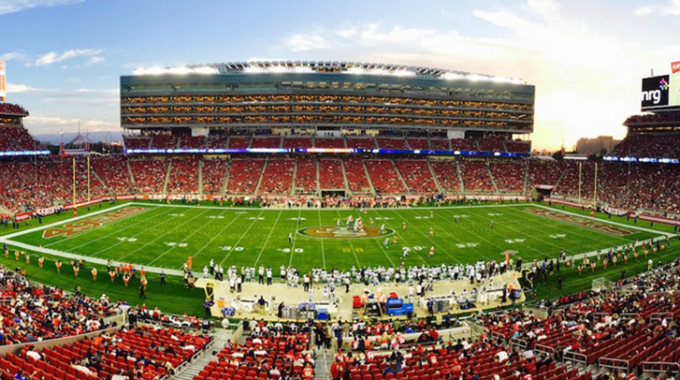
March Madness is upon us again! It’s the College Basketball NCAA Tournament, aka the Big Dance. It starts with the best 64 teams in the nation, and after 63 single-elimination games, one team is crowned champion.
You’re probably about to join millions of serious and casual college basketball fans alike in filling out a bracket, or two or three!
But if you’re like most of us, your chances of winning are tiny. Why? Because you probably fall victim to one of these classic mistakes that tend to bust brackets. Here are those mistakes, and how to avoid them this year!
- Familiarity Bias. College basketball is a regional sport. Each conference is geographically defined, and you’re most familiar with the teams in the conference you follow. Your brain wants you to pick those teams. BUT, be careful. Just because you know them doesn’t mean they’re going to win. Especially, don’t pick them to beat higher seeds in the bracket. That’s exactly what your peer group will do. Zig when they zag to differentiate your bracket.
- Anchoring. If you only watched a few games this season, make sure that’s not the main reason you’re predicting a deep tournament run. If you’re picking a team beyond the Sweet 16 based on watching just one game, do some research and find additional evidence to support the pick. If you can’t find any, change the pick.
- Loss Aversion. Don’t be scared to pick upsets, especially early in the tournament, where each game is only worth 1 point. There are an average of six upsets by 10-15 seeds each year. The 12/5 seeds are particularly ripe for upsets, with 28 of the last 33 tournaments featuring at least one 12/5 upset. Be bold and pepper your bracket with strategic upset picks.
- Recency Bias. The Conference Tournaments that take place the week before the big dance are when casual fans start tuning in. It’s tempting to overweight the significance of these games, but don’t do it! Pay closer attention to the regular season conference record. Teams who can sustain high performance throughout the season are most likely to have the chops to win on the biggest stage.
- Confirmation Bias. Every team in the tournament has a seed. It’s easy to let those numbers bias you for or against teams. Our brains allow us to automatically assume that a #6-seed is better than an #11-seed, and that the #1-seeds are definitely going to the Final Four. But it’s critical to look at empirical data and not just go off the seed numbers. Remember, it’s extremely rare that all four #1-seeds make the Final Four. Take a hard look at how the #1-seeds might be flawed, and decide if those flaws can be exposed.
- The Gambler’s Fallacy. This classic mistake has stymied gamblers since the beginning of time. We project a certain team to win, just because “they are due.” That’s just not how it works. It doesn’t matter if they’re due or not. If you find yourself thinking this way, go back and look at the empirical data instead.
- The Halo Effect. Every year, there are a handful of players and teams that catch the media’s attention. A shooter on a hot streak, a point guard showing great leadership leading up to the Tournament, or a surprising conference tournament winner. It’s easy to fall in love with these Cinderella stories and let them influence your picks. But generally speaking, if the best player in the tournament plays on a 10-loss team, he’s not going to suddenly take his team to the Final Four. And that surprise team’s stage coach is going to turn back into a pumpkin.
- Following the Herd. Once we get to March, casual fans all listen to the same gurus–Jay Bilas, Dick Vitale, Gary Parrish, etc. These guys are smart, but remember, everyone else is following them too! If you just copy their picks, your bracket will look just like everyone else’s. That’s a surefire way to guarantee a mediocre bracket!
- Going It Alone. The opposite of following the herd is ignoring all the talk, including smart analysis. If you’re a serious college basketball fan, this may be tempting. And if you successfully avoided the first 8 mistakes on this list, you’ll probably do better than most. BUT, if you really want to win, realistically, you’ll need some help to give you an edge.
The best way to avoid Mistake #9 is to put Sportspicker AI in your corner. One of the reasons we started Sportspicker A.I. is that our AI technology was so good at picking brackets. In 2018, we finished in the 92nd percentile of ESPN’s massive Bracket Challenge! And in 2019, we finished in the 75th.
Just click the button below to get the Sportspicker AI edge. Then go dominate your bracket! Why wouldn’t you?
The news, information, opinion, and recommendations on this website are for education and entertainment only. This information is not intended to violate any local, state, or federal laws, and all persons using this website are solely responsible for complying with the laws of the jurisdictions in which they reside. Unanimous A.I. is not responsible for the accuracy of any predictions made on this website, and does not recommend using the information on this site for wagering. Unanimous A.I. does not intend to encourage or condone gambling in jurisdictions where it is prohibited or by persons who are under the legally required age. In accordance with the Terms of Service, you may not sell, resell, publish, republish, copy, duplicate, reproduce, redistribute, broadcast, license or otherwise commercially exploit or make the contents of this email available to any third party. The Terms of Service that apply to Sportspicker AI may be found here.

Want to learn more about our Swarm AI technology? Check out our TED talk below…



